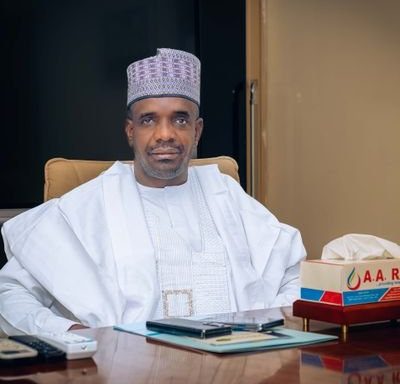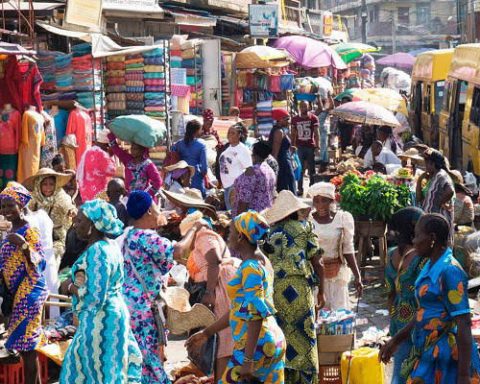Nigeria’s latest infrastructure plan is sparking controversy after the Federal Executive Council (FEC) approved ₦142 billion for six new bus terminals, one in each geopolitical zone. Critics argue the allocation is a glaring case of misplaced priorities in a country where hospitals remain underfunded and millions face worsening health crises.
When Terminals Outweigh Hospital Beds
Join our WhatsApp ChannelThe sum earmarked for bus terminals is greater than the combined annual budget for all federal teaching hospitals and psychiatric centres, which collectively received less than ₦100 billion in 2024.
In the 2025 budget, health was allocated ₦1.38 trillion about 5% of the national spending plan. This falls far short of the 2001 Abuja Declaration, where African governments pledged to devote at least 15% of their budgets to health.
For critics, the optics are stark: gleaming new transport terminals, while hospitals battle dilapidated wards, unpaid staff, and insufficient drugs.
READ ALSO: Unlocking Nigeria’s Industrial Growth: Experts Chart Path To Boosting Mining, Steel Production
Obi Slams Project: “A Tragic Irony for Our Country”
Former presidential candidate and Labour Party leader Peter Obi was among the first to condemn the project, describing it as a symbol of poor governance.
“In the 2024 budget, the entire budget of all the teaching hospitals across all the federal universities in the country, as well as the federal psychiatric centres, is under ₦100 billion, yet the government has approved ₦142 billion for bus terminals. This is disturbing, considering that health is one of the most critical areas of development, which is deteriorating and remains grossly underfunded. This is not governance.”
Obi linked the decision to Nigeria’s deepening healthcare crisis, citing a WHO report estimating that over 20 million Nigerians live with mental health conditions while access to psychiatric care remains severely limited.
Government: Terminals Will Reduce Crime
The Federal Government has defended the decision as a strategic intervention in Nigeria’s overstretched transport sector.
Transportation Minister Sen. Sa’idu Ahmed Alkali offered a clear justification at the FEC briefing:
“In spite of the significance of road transportation in Nigeria, there are no bus terminals that address the needs of millions of commuters. This has resulted in increased crime, road traffic accidents, and the spread of arms on our highways.”
According to Alkali, the terminals will enhance passenger comfort, improve safety standards, and stimulate economic activity.
READ ALSO: Nestle’s MAGGI Reaches Over 8,000 Nigerian Women With Nutritional Insights At 2025 August Meeting
Health Advocates Warn of Dangerous Underfunding
Health experts and advocacy groups have long cautioned that Nigeria’s persistent failure to meet its health funding commitments is worsening outcomes.
A 2024 Human Rights Watch report, citing Allana Kembabazi of the Initiative for Social and Economic Rights (ISER), was blunt:
“It is disappointing that African countries have failed to meet health spending targets they set … lives are lost as a result of underfunded, poor-quality public health systems.”
Similarly, a SciDev.net analysis stressed that Nigeria’s budget for health remains far below the Abuja Declaration’s target, a situation that continues to erode the capacity of hospitals and public health institutions.
READ ALSO: NNPCL’s Revenue, PAT Drop In July
₦1.38 Trillion for Health vs. ₦142 Billion for Bus Stops
The 2025 health allocation of ₦1.38 trillion may look large, but it accounts for just 5% of the total budget. In contrast, the World Health Organization recommends a minimum of 15% for health to meet international standards.
By comparison, South Africa spends around 12% of its budget on health, while Ghana allocates about 9%. Nigeria remains below even the continental average, despite being Africa’s most populous nation.
Beyond Numbers: The Human Cost
The contrast is not just statistical but moral: what does government value more infrastructure optics or human well-being?
For millions of Nigerians, particularly in rural areas, access to affordable healthcare remains a matter of life and death. The lack of sufficient funding means hospitals are understaffed, equipment is outdated, and psychiatric centres are unable to cope with the rising burden of mental health cases.
For critics, the terminals represent another example of Nigeria’s long history of “prestige projects” that consume huge resources but deliver limited social benefits. From stadiums to airports, shiny infrastructure has often taken precedence over strengthening education and healthcare.
Can a Sick Nation Afford Luxury Terminals?
At the heart of the debate lies a moral and economic dilemma: should Nigeria prioritize infrastructure that may improve mobility and security, or should scarce resources be channelled into hospitals, clinics, and psychiatric care?
As Nigeria continues to battle a high disease burden, one of the world’s fastest-growing mental health crises, and an exodus of medical professionals, the ₦142bn terminals have become more than just a budget line they mirror Nigeria’s deeper struggle with governance, priorities, and leadership.
Amanze Chinonye is a Staff Correspondent at Prime Business Africa, a rising star in the literary world, weaving captivating stories that transport readers to the vibrant landscapes of Nigeria and the rest of Africa. With a unique voice that blends with the newspaper's tradition and style, Chinonye's writing is a masterful exploration of the human condition, delving into themes of identity, culture, and social justice. Through her words, Chinonye paints vivid portraits of everyday African life, from the bustling markets of Nigeria's Lagos to the quiet villages of South Africa's countryside . With a keen eye for detail and a deep understanding of the complexities of Nigerian society, Chinonye's writing is both a testament to the country's rich cultural heritage and a powerful call to action for a brighter future. As a writer, Chinonye is a true storyteller, using her dexterity to educate, inspire, and uplift readers around the world.










